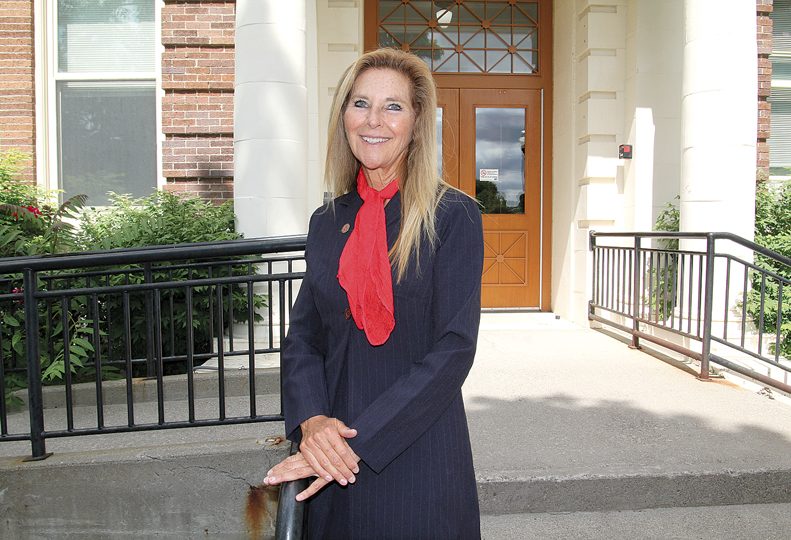
Home » Visions 2023: Societal shift to challenge higher education sector
Visions 2023: Societal shift to challenge higher education sector
Accessibility must be focus of universities, colleges in the INW

December 29, 2022
Earlier this fall, I was invited to moderate a panel at the Journal of Business’s Workforce Summit exploring long-term solutions to current workforce issues.
My final question to the group, which included Gonzaga President Dr. Thayne McCulloh, SPS Superintendent Dr. Adam Swinyard, Dr. Lisa Brown from the Department of Commerce, and Matt Albright from Providence, was “What keeps you up at night in terms of workforce readiness?”
The answers echoed what I and all other higher education leaders already know: A societal shift has occurred that is fundamentally changing the way we think about universities, degree paths, and community impact.
Looking toward the future, pursuing higher education, which is a top indicator of social mobility and community impact, will need to continue to prove relevant in today’s workforce landscape. According to the U.S. Bureau of Labor and Statistics, individuals 25 years old or older with no college earn almost $700 less per week than those with a bachelor’s degree and higher. And those with a college degree typically have greater job satisfaction, are more likely to be employed, vote, volunteer, and give back to their communities.
A college education remains a good return on investment in today’s labor market, but too often that message, especially post-COVID, has become lost as families continue to battle back from the economic downturn spurred by the pandemic.
As family budgets tighten, higher education must continue to be accessible through affordable tuition rates and development of flexible pathways to degree/certificate completion for traditional and nontraditional students. Eastern Washington University prides itself on its affordability and accessibility, especially for citizens in the greater Spokane area, which make up almost 38% of our student body. However, all public universities need state legislators to continue their investment in higher education and restore funding to reduce a university’s reliance on tuition dollars.
The primary driver of higher tuition prices has been the state-to-student cost shift brought on by the disinvestment in public higher education at the state level, especially in Washington. Higher tuition becomes a barrier to a college degree, often disproportionately affecting first-generation students and historically underrepresented populations.
As a first-generation college student, I know first hand the impact a degree can have on a person’s social advancement. And while a degree improves social mobility, it also is an engine of change through its community impact. As researched by Dr. Patrick Jones, executive director of the EWU Institute for Public Policy & Economic Analysis, some of the greatest workforce needs in the Spokane region are nursing and computer occupations, both of which require a college degree. In identifying this trend, EWU has invested time and resources into bolstering our cybersecurity and nursing programs. The next step will be to leverage our partnerships with our amazing colleagues at the local community colleges and look to develop partnerships with regional businesses to provide more hands-on experiential learning to support students’ career goals.
Impact also extends beyond economics—higher education has a role to play as we address climate change and look to reduce our carbon footprint. Campuses need to be developing sustainability plans that will strengthen stewardship of historic, natural, and cultural resources, create an environment supportive of green technologies, and which in turn, creates meaningful environmental learning opportunities for students. These are worthwhile investments in long-term resiliency, and we need state legislators to support efforts at all public institutions and commit funding to support these vital programs in recognition of the impact they have on entire regions.
Finally, I am particularly excited about the future of higher education as it pertains to supporting an increasingly diverse community of learners. As our cities become more diverse, we must continue to ensure our classrooms, campuses, and support programs are supportive learning environments to create a sense of belonging for all students. EWU is continuing to work toward the designation as a Hispanic-serving institution, along with deepening our partnerships with tribal nations, advancing DEI goals, and improving our support programs to be more responsive to student needs. This should be a goal of all higher education institutions.
In the coming years, higher education will face challenges—a shift in the journey to a degree. But where there are challenges, there are opportunities.
Dr. Shari McMahan is the president of Eastern Washington University.
Latest News Education & Talent
Related Articles
Related Products



![Brad head shot[1] web](https://www.spokanejournal.com/ext/resources/2025/03/10/thumb/Brad-Head-Shot[1]_web.jpg?1741642753)
